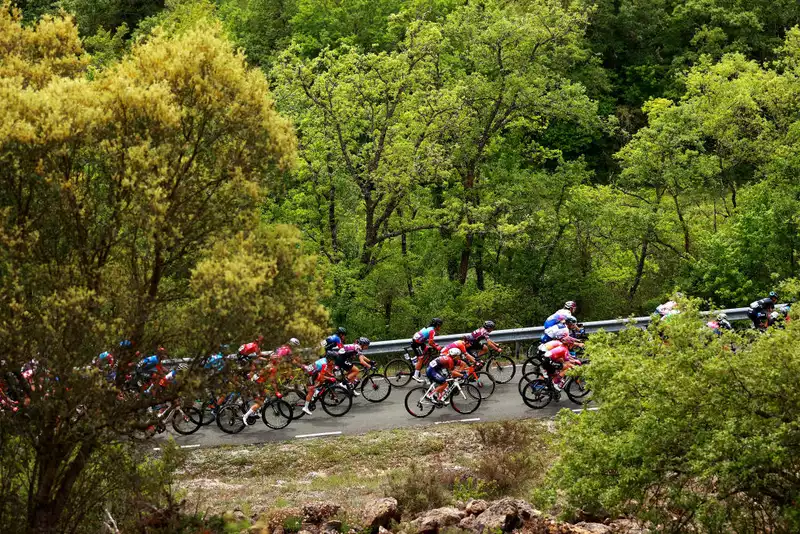All eight women's continental teams registered in Spain could face mandatory team size, staffing, and infrastructure regulations in addition to a minimum monthly salary of 965 euros in 2023.
The Royal Spanish Cycling Federation (RFEC) has confirmed to Cycling News that it will request these teams to register under national social security and minimum inter-professional salaries.
The UCI currently imposes minimum salary requirements on top-ranked women's world teams, which were implemented at the start of the 2020 season.
This year, the minimum salaries for the 14 top teams are €27,500 (employed) and €45,100 (self-employed); from 2023 onwards, this minimum salary will correspond to the minimum salary set by the men's second division professional teams.
Currently, there is no minimum salary requirement for the 49 Continental women's second division teams that are registered with the UCI and compete on the UCI international calendar. Many teams have small budgets and do not offer salaries or stipends. However, some second-tier teams do pay salaries to their players.
Currently, there is one women's world team in Spain: Movistar. There are eight registered women's continental teams in Spain: Bizkaia-Durango, Eneicat-RBH-Global, Laboral Kutxa-Fundacion Euskadi, Massi Tactic, Río Miera-Cantabria Deporte, Soltec, Sopela, and Farto-BTC.
The Royal Spanish Cycling Federation (RFEC) may require all eight women's continental teams to register for social security (SS) and provide a minimum inter-professional salary (SMI) of 965 euros per month, Spanish news media outlet Ciclo21 (opens in new tab) reported.
The minimum interprofessional salary (SMI) is the minimum compensation a company is obligated to pay its employees for the work they have performed during a given period.
In addition, the RFEC may mandate that the eight women's continental teams have between eight and 16 players, a coach, assistant staff, and a team physician. Thus, a team of 12 players and staff must be able to pay a salary of up to €11,580 per month.
Teams must also provide a team bus or motorhome, three passenger vehicles, a van, and the equipment, gear, and clothing necessary for competition.
RFEC intends to appoint an auditing firm to ensure compliance with these requirements. Teams wishing to apply for a license must do so by November 10, with a budget and a report assuring that the team has met all stipulated requirements.
Some teams, especially those with smaller budgets, have indicated that the new requirements are financially burdensome and impractical to meet. With the increased financial requirements, some teams may look to apply for licenses outside of Spain.
Others say this is a step in the right direction: Laboral Kutxa-Fundación Euskadi told Cyclingnews that it aims to become a women's world team in 2024 with a budget of €1.8 million and a long-term sponsorship agreement through 2029 The team's manager told Cyclingnews that the team has signed a long-term sponsorship agreement through 2029. The team's manager told Cyclingnews that the new financial and infrastructure requirements will have little impact on the team.
"The norms that affect the Spanish conti teams also affect us. But our route map is clear and this new norm is in line with what we had already planned. It may affect our initial plan, but I think it is a positive norm for cycling and we will adapt," team manager Aitor Galdos said in an interview with Cycling News.
Cyclingnews requested further details from the Spanish Cycling Federation.


Comments